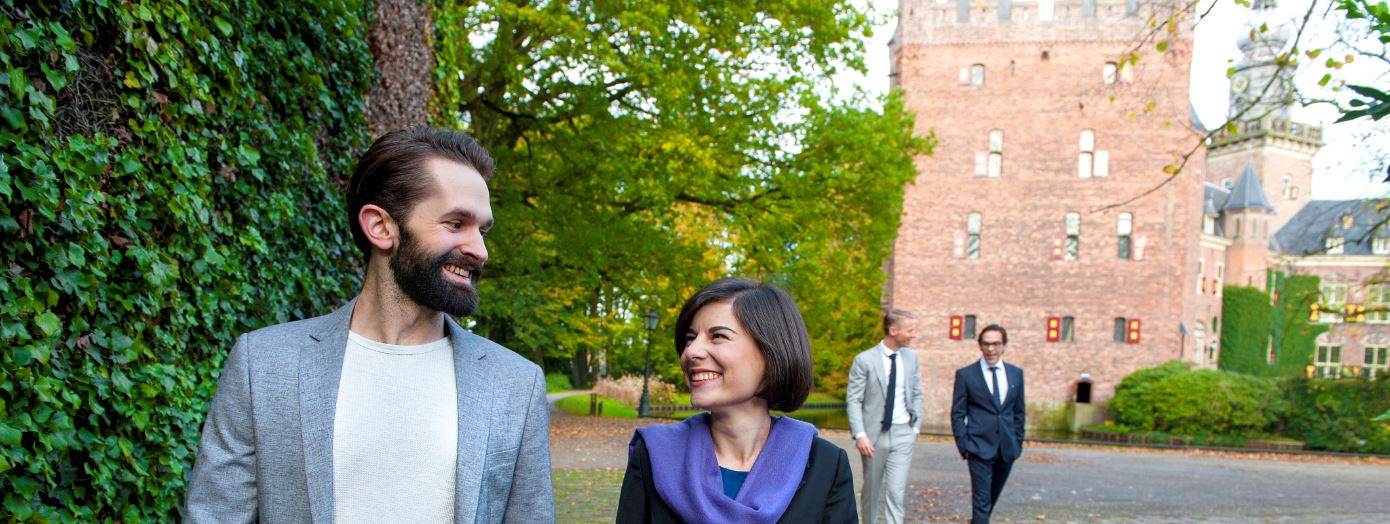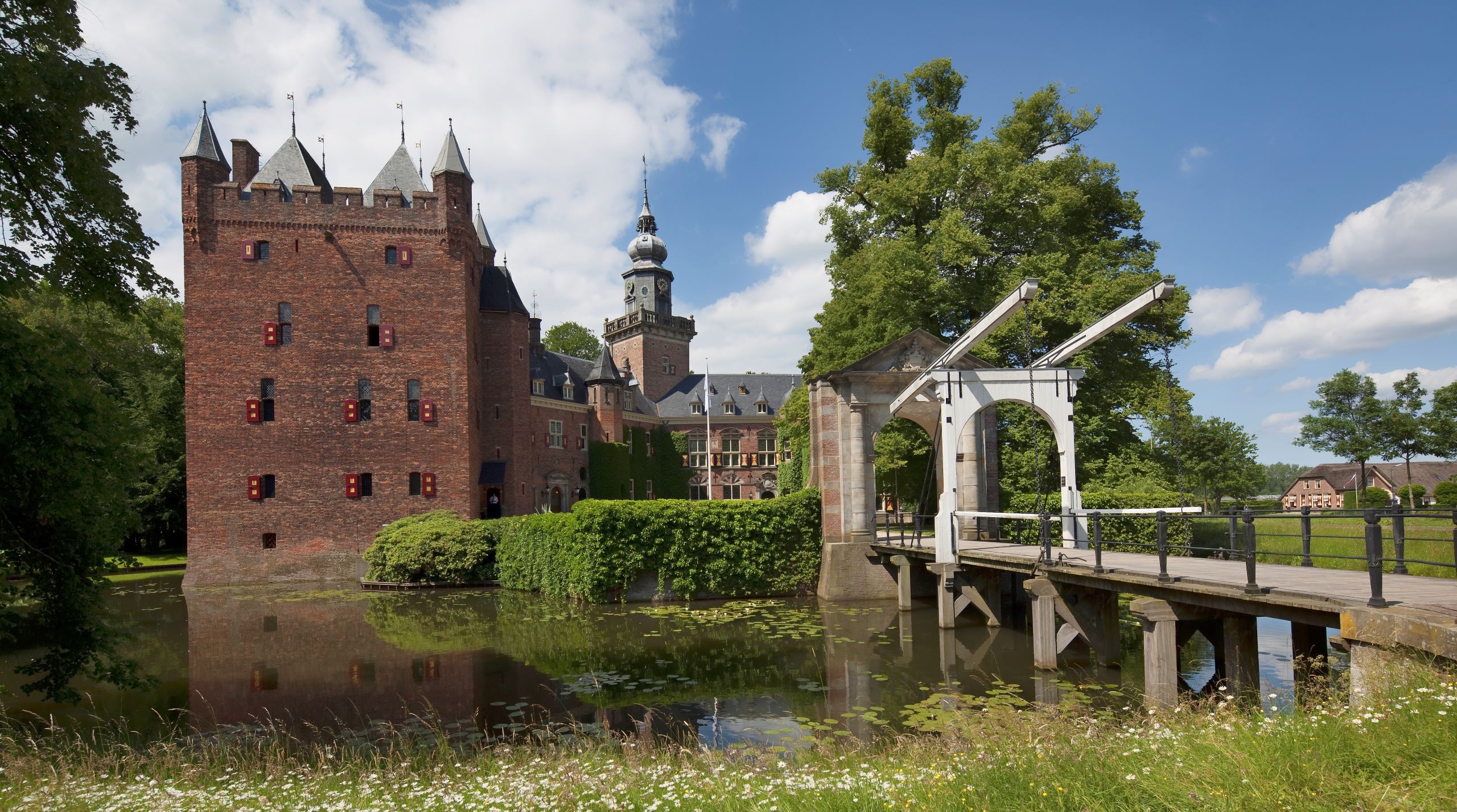A crisis often brings, feelings of insecurity and fear, especially when the crisis is manifesting itself, as it is currently, worldwide. At the same time, we know the statement 'Never waste a good crisis', attributed to Winston Churchill, which he formulated at the end of the Second World War. The idea behind it is that opportunities can also arise from a crisis. Could that also be the case with this crisis, and are those opportunities already manifesting themselves?
In this blog a few thoughts about this, formulated in advice.
1. Use your creativity
A crisis imposes limitations on us. Limitations in, freedom, finance, space, and among other things. So the search is for how we can get the job done under those difficult circumstances, how we can still achieve our goals and dreams, how we can endure the crisis?
And that's exactly what we got our creativity for. For when things get difficult and there are all kinds of limitations and problems. Then we need new ideas to continue and make progress. The necessity makes that we all (must) become inventors. And that is what we see happening: from closed restaurants that are now starting a drive-in to piano teachers who continue their lessons online.
So brainstorm with yourself or with your team about things like this:
- How can we continue our business and achieve results despite the limitations?
- How can we, as an organization, think and react differently than our fellow organizations in our sector?
- What can and should we invest in right now?
- What do our customers expect from us during this crisis?
- What leadership and communication do our employees expect during this period?
- Do we sufficiently involve our internal and external stakeholders in finding solutions?
- How can we use our expertise to help our customers and society to find solutions?
- Are there any learning experiences from previous crises in our organization that we can now benefit from?
- When do we call ourselves successful in this time of crisis?
To boost our creativity and focus on the chance of a crisis, it is important to ask the right questions. I mentioned a few above. However, in your organization or for your situation, other questions may be relevant. Then formulate these first.
In a brainstorming process, it is important that you first generate as many answers and ideas as possible and then reduce the multitude by asking questions, for example: What has the most effect and is achievable in the short term? And what is most urgent at the moment? Especially the urgency question is very important. If your house is on fire, you don't want to think too long about what to do, but take immediate action.
2. Work Together (Collaboration)
When Ronald Reagan addressed the General Assembly of the United Nations in 1987, he said that he could imagine how quickly all differences around the world would disappear if we were threatened by extra-terrestrials 'aliens'. This connecting role can also play a global crisis. There is a growing awareness that we can only weather the crisis if we help each other, if we are empathic, if we work together. So going beyond selfishness.
A crisis can unleash the bad in people. There are plenty of historical examples of this. But above all, a crisis can strengthen the good in us. And that's what we're seeing at the moment. People help and encourage each other.
Yesterday we met friends who had bunches of flowers on the back of their bikes. They brought them to fellow villagers whom they knew desperately needed such a gesture right now. On a national level, all kinds of initiatives for cooperation and help are emerging, such as 'heelnederlanddeelt.nl' and the platform 'servethecity.nl'. Right now there is an opportunity to experience the power of cooperation. And when the crisis is over, we will have reached a higher level in this area.
3. Reflect
A crisis makes us humble. Our plans no longer come true, meetings prepared long in advance are canceled. The daily routine of life is disrupted. It can make us despondent and we feel small in the uproar. We cannot influence what happens in the world around us, but what we do influence is, how we react to it. And first instance that requires moments of reflection.
Reflection on what we find important in work and life. We're sorry that we cannot go to work at the moment. However, few will regret in the last few minutes before they die that they were not in the office more often in their lives. So what's it really about? A crisis forces us to think about what we think is important at its core.
I would like to mention three reflection questions on a personal level that can help, especially in times of crisis:
- What am I grateful for, that despite everything, has been achieved?
- When I look at earlier periods in my life, where certainties disappeared, what was always my deepest source of certainty, which allowed me to move on?
- Who currently needs my help, my support? How can I best give it? Do I ask enough for help and support myself?
With such reflection questions we build up more self-knowledge. They allow us to look at things differently and stimulate an action orientation in a time of unpredictability and turbulence.
4. Make yourself crisis resistant
Writer Eckhart Tolle said during a meeting: if you're not experiencing a problem at the moment, you're in between two problems. The audience laughed, and so did Eckhart himself. But he meant it seriously. Life consists of a series of problems (or call it challenges) that we have to solve, and a crisis brings about a complexity of problems.
That's why it's important to find out what you can do to become crisis resistant. I would like to mention two important building blocks for this.
Be curious and keep learning
Many organizations have seen in recent weeks that their employees have accelerated their learning to work and collaborate remotely, in an online environment. That was difficult at first. It was a steep learning curve. We had to get out of our comfort zone, but many succeeded in the end. When the crisis is over and we can go back to work, we will be able to hold online meetings with greater ease and thereby save us from travel, which is good for the environment. Due to the crisis, we acquired those skills more quickly.
We see that some companies have been able to change their production completely and focus on manufacturing products that are currently in high demand. For example, there are beer brewers who now produce disinfectants. And General Motors is going to produce respiratory equipment. Undoubtedly the spin-off of this will be, learning about flexibility in the production process.
So the faster we can bring ourselves, as an organization or as a professional, in a mode of curiosity, of openness to learn new things and daring to improvise, the more active and proactive we are in the crisis.
Find your higher purpose
I wouldn't call it a crisis, but in the institution for elderly care that I monitored, a lot of unrest among employees had arisen over all the extra work involved in an organization-wide innovation project. The turning point came when, in a speech to the entire staff, the director said: 'But we don't innovate for the sake of innovation. We put in our best effort because we want to be the care institution to which you would entrust your parents to'. The director reminded her employees of the higher purpose, so that's what we all do it for in the end. And that again brought positivity to the organization, allowing the innovation project to continue.
Confirming such a higher goal together is especially important in a time of crisis in which suddenly much is no longer possible and certainties are lost. What makes it then worth not to give up? What makes sense to take new actions now and stay positive? Think of all those healthcare professionals who are physically and mentally exhausted, but still persevere, and stand firm because they always have the goal of saving lives and preventing disease.
Especially now, it is therefore important that the leadership in organizations repeatedly emphasizes the mission and how this mission can be realized even in times of crisis and how everyone can contribute to this. Right now, it is important that we personally confirm why we want to and will endure this crisis.
Because this crisis also has an end. Therefore, let's not miss the opportunity of the crisis to make us stronger. Let’s not miss the opportunity of the crisis to harness the power of cooperation. Let's not miss the opportunity of the crisis to confirm what is really important to us and what we are committed to.
Related programs
-
Leadership Essentials (English)
Start date: February 2, 2026 (English), March 23, 2026 (Dutch), September 28, 2026 (Dutch)Language:- Dutch
Location:- Breukelen
Leadership Essentials is centered around impactful leadership. As a project manager, consultant, or team leader, you will learn to mobilize people toward a shared goal through authentic leadership by bringing out the best in yourself and those around you.
View program
-
Global HR Leadership Program
Start date: March 4th 2026Language:- English
Location:- Breukelen
- Other...
The world of HR is changing. A 6 Months Blended Learning Journey To UNLOCK Your Potential
View program
-
Cooperation and Leadership
Start date: March 4th 2026Language:- Dutch
Location:- Breukelen
This module is only given in Dutch. Please visit our Dutch site.
View program
-
Global L&D Leadership Diploma Program
Start date: March 26, 2026Language:- English
Location:- Amsterdam
- Online
- Other...
Get new insights on how organizations can be more effective and efficient in developing their people by following the Global Master Program: L&D Leadership
View program
-
Leadership and Cooperation
Start date: March 16th 2026Language:- Dutch
Location:- Breukelen
The module Leadership and Cooperation prepares you for the leadership of the future. Part of the modular MBA Business & IT.
View program

